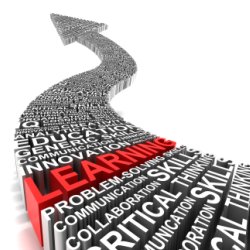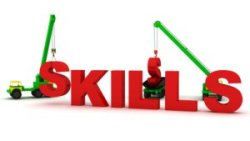Building key decision making skills
 When considering highly successful people, we often attribute their success, at least in part, to their decision making. What decision making skills can help people make better choices? Is making better choices a talent, or is decision making skill something that can be learned and improved?
When considering highly successful people, we often attribute their success, at least in part, to their decision making. What decision making skills can help people make better choices? Is making better choices a talent, or is decision making skill something that can be learned and improved?
Given the thousands of decisions we make every day, all having consequences that can create positive or negative results, skills to improve this capability might be considered fundamental to a productive life. Learning decision skills provides the opportunity to increase positive outcomes while decreasing the consequences of failure that are part of the learning process.
What skills are important to decision making?
Decision making skills should accelerate gaining knowledge that will make our choices more effective. Our decision making model helps us to identify information and abilities important to choosing. Skills include:
 Using a decision making process that provides a consistent set of steps leading to a decision outcome while avoiding common decision traps and thinking errors;
Using a decision making process that provides a consistent set of steps leading to a decision outcome while avoiding common decision traps and thinking errors;- Approaches for values and needs identification such as stakeholder analysis and candid self-reflection;
- Discovery and creativity skills that can help identify or generate decision alternatives;
- Imagination and visualization used to envision possible future consequences of alternative solutions;
- Information, data gathering, and observation methods that enable evaluation of solution options;
- Techniques for deciding that aid in analysis and evaluation of decision options;
- Logic and analysis that enables inferences or conclusions from relevant information and assumptions;
- Assessment of risk, uncertainty and application of probabilistic analysis to the likelihood of outcomes
- Collaboration, communication, cooperative learning, negotiation, and active listening needed for effective group decision making;
- Coping strategies that help manage emotion and perception issues while increasing objectivity in stressful decision situations;
- Abstraction, categorization and organizing that identifies and connects related concepts (such as decisions);
- Self discipline and leadership skills that inspire and motivate commitment and action for a chosen solution;
- Time and task management needed for successful decision implementation.
Problem solving and decision making are closely related, making many problem solving skills helpful to the decision making process. Critical thinking and systems thinking are also strongly linked to decision making, with significant overlap in competencies.
How can decision making skills be improved?
 Choices we make every day present us with daily opportunity to improve our skill in making decisions. Many of these choices are made out of habit, but just bringing these selections to a conscious level can enable evaluation, analysis, and self reflection that can be used to improve these and other decisions.
Choices we make every day present us with daily opportunity to improve our skill in making decisions. Many of these choices are made out of habit, but just bringing these selections to a conscious level can enable evaluation, analysis, and self reflection that can be used to improve these and other decisions.
Certainly, improving decision skills will come from the learning gained from experiencing the consequences of making poor decisions. However, for high value decisions with significant consequences, we would like to have developed these skills in advance in order to avoid disastrous outcomes to the extent possible. The goal would be to improve our decision making skills in an environment where the risk of significant negative consequences that come from poor choice is reduced or eliminated.
Decision making games provides one such environment, providing the opportunity to develop skill with exploration, projecting likely outcomes based on probabilities, as well as developing strategic abilities. Simulations can provide emotional decision making experiences that enable improved coping. They can also help address one of the challenges with complex decision making problems: projecting the longer term consequences of our choices.
As with all skills, learning to make better choices comes from seeing, listening and doing. They improve with study, counsel, coaching, and practice. Prioritizing learning or choosing of core values can aid decision makers by providing an early and enduring assessment framework for future decision making.
How can you tell if decision making skills are improving?
 This presents one of the other difficulties with developing competence in decision making. Good or bad outcomes do not necessarily imply good or bad decision making. Except for cases where clear and direct causation can be established, decision results are influenced by random circumstances, unforeseeable events, and imperfect knowledge. With decision timelines that extend beyond a few years, it becomes apparent that even waiting for the effects of a decision may make assessment of improving skills problematic.
This presents one of the other difficulties with developing competence in decision making. Good or bad outcomes do not necessarily imply good or bad decision making. Except for cases where clear and direct causation can be established, decision results are influenced by random circumstances, unforeseeable events, and imperfect knowledge. With decision timelines that extend beyond a few years, it becomes apparent that even waiting for the effects of a decision may make assessment of improving skills problematic.
Some indications that can suggest continuing skills improvement include:
- Measurement of progress toward long term goals
- Evidence of consistently better results despite occasional failures
- Successful forecast of results from tests of decision making skills with lower risk choices
- Increased objectivity and use of information and evidence
- Use of failures as opportunities to learn
- Increasing decision making confidence
- Consideration and creation of more options
- Increased ability to motivate needed commitment and action
- Better able to manage emotions toward achieving desired outcomes
- Routine use and improvement of a decision making process
- Better decision timing and prioritization
- Increasing ability to imagine and project possible consequences
- More effective use of advice, counsel, and coaching
- Ability to use different techniques for different decision situations
- Growing influence and collaboration
- Application of multiple decision making strategies
Building skills that last
Decisions define our future. They often come in a series of connected decisions and encourage us to think about what will come next. Decision making skills cross all disciplines and are transferrable to any job, career, or vocation. A focus on these fundamental skills should be considered essential to any meaningful education.
We make thousands of decisions a day. Making a choice is easy. Choosing well takes knowledge and skill.

